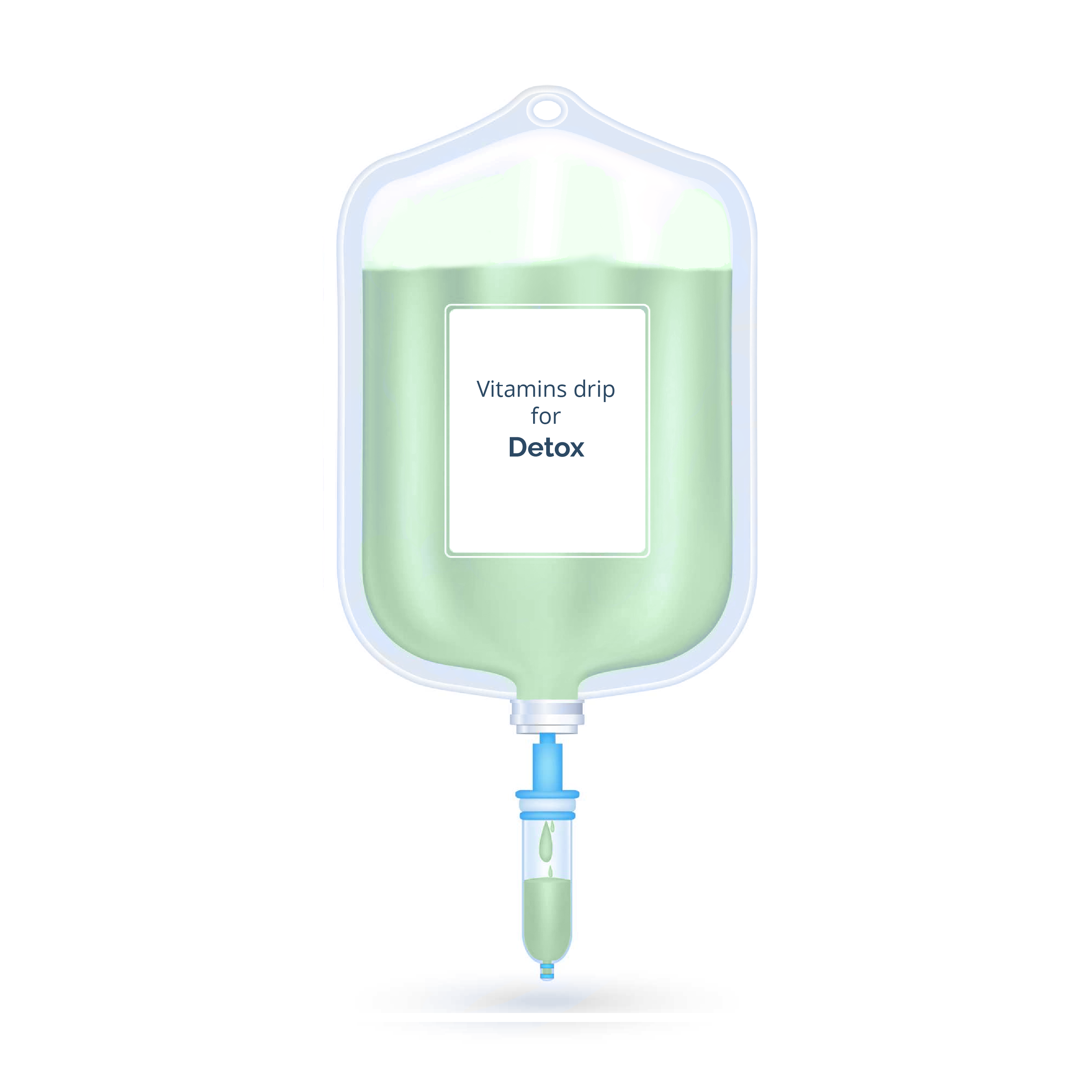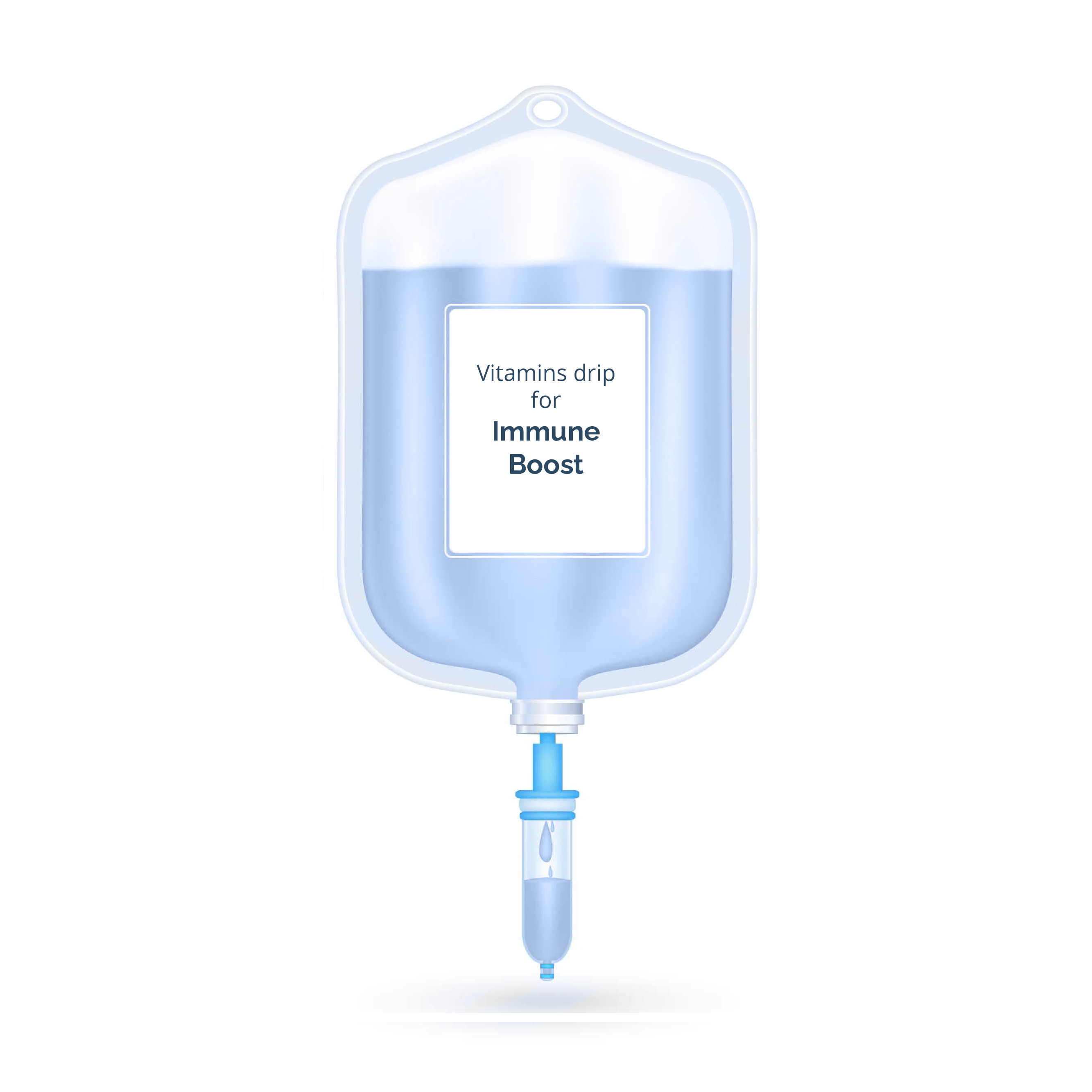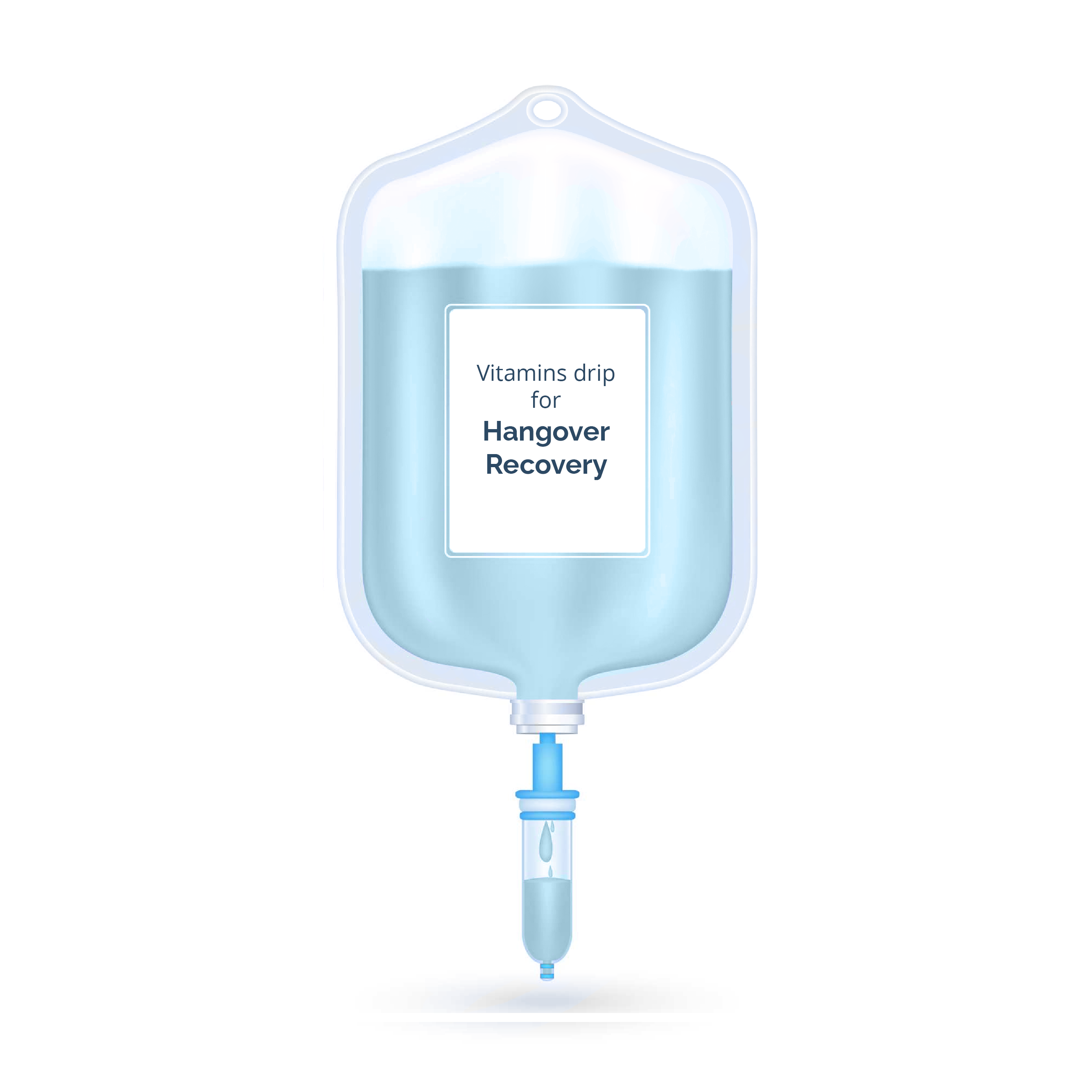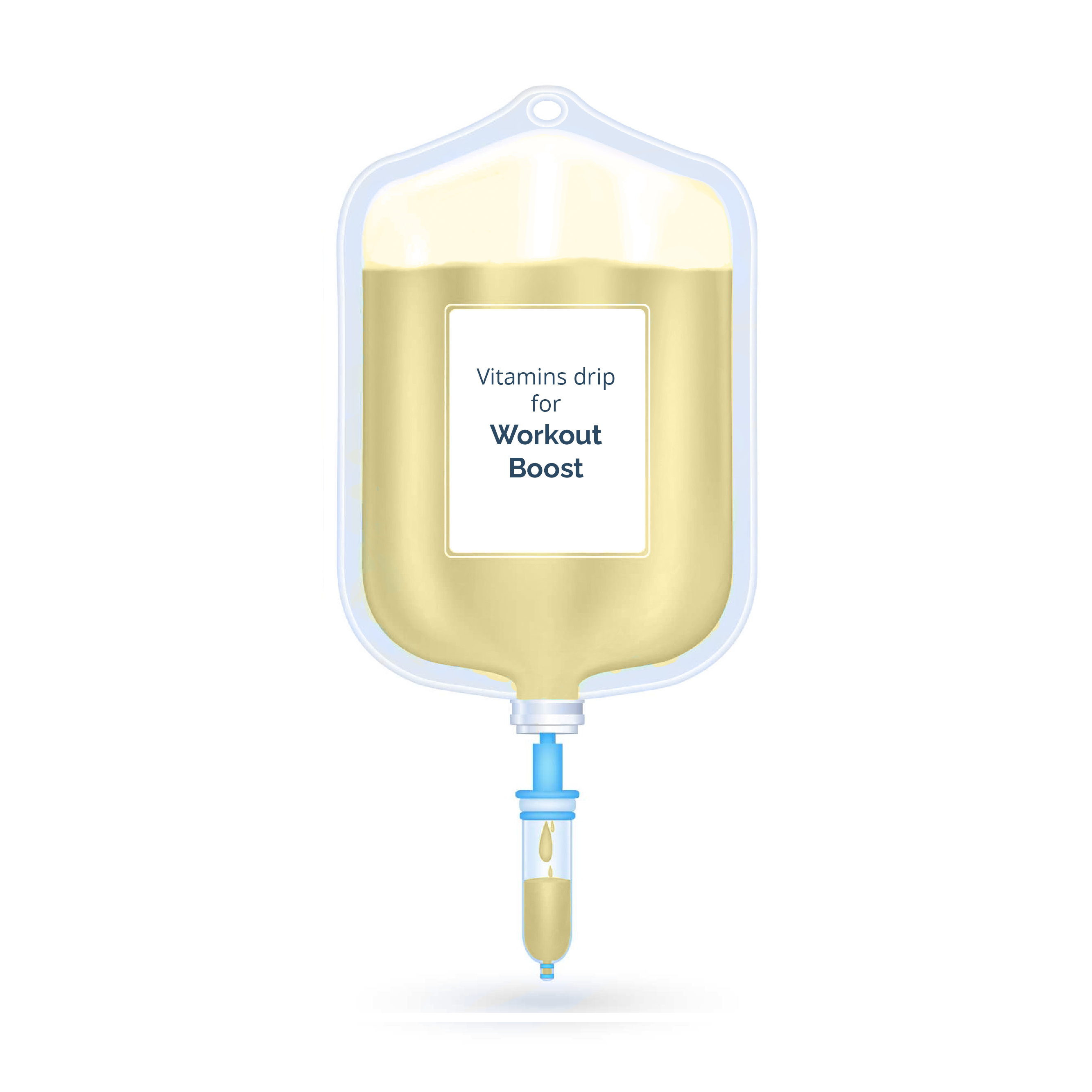
Detox
Enhance your natural Detoxification process with a boost of Nutrients, Vitamins, Minerals, and Amino Acids. Reduce inflammation and Oxidative Stress, and Rehydrate your body for top performance
The Detox IV is formulated to:
Remove toxic heavy metals
Flush out toxins
Fight dehydration
Replenish vitamins
Reduce inflammation
Stop oxidative stress
Control weight and hormones
Ingredients
Normal Saline
Normal saline is a cornerstone of intravenous solutions commonly used in the clinical setting. It is a crystalloid fluid administered via an intravenous solution. Its indications include both adult and pediatric populations as sources of hydration and electrolyte disturbances. It can come in various concentrations; the two specifically addressed are 0.9% and 0.45%.
Additionally, it has a use as a priming solution for various procedures (e.g., hemodialysis procedures) and to initiate and terminate blood transfusions. Indications for sodium chloride infusions also include pharmaceutic aids and diluents for the infusion of compatible drug additives.
Vitamin B
B complex vitamins refer to several different vitamins which are part of the same family. Together, these water-soluble vitamins perform a range of vital functions including cardiovascular support, helping the body convert food into energy, immune function, and more
In addition to these, B complex vitamins are most notable for their role in promoting healthy skin, hair, and nails. They reduce free radicals in the body that contribute to aging, resulting in an overall healthier and younger appearance.
High dose Vitamin C
Vitamin C (also called L-ascorbic acid or ascorbate) is a nutrient that humans must get from food or dietary supplements since it cannot be made in the body. Vitamin C is an antioxidant and helps prevent oxidative stress. It also works with enzymes to play a key role in making collagen.
When taken by intravenous (IV) infusion, vitamin C can reach much higher levels in the blood than when it is taken by mouth. Studies suggest that these higher levels of vitamin C may cause the death of cancer cells in the laboratory.
Multivitamin
Multivitamins are designed to fill nutritional gaps. There are different brands and formulations, and each will list the percent daily value (DV) or recommended dietary allowance (RDA) of the nutrients in one serving.
A label that lists 100% DV of vitamin D means the formula provides 100% of the vitamin D you need each day. This is based on a 2,000-calorie diet, so if you eat more or less, you'll need to make some adjustments.
Glutathione
Glutathione shields cellular macromolecules from redox reactions and mitigates oxidative stress on the body by detoxifying the body, neutralizing free radicals and facilitating cell excretion. Glutathione also recycles vitamins C and E to protect cells from damaging oxidants. The amount of glutathione in cellular fluids naturally decreases over time, which in turn reduces the effectiveness of the body’s natural ability to remove free radicals.
A deficiency in glutathione can contribute to increased oxidative stress on the body, so supplementation is especially valuable in preventing the damaging effects of free radicals and reducing oxidative stress at the cellular level. Because glutathione is not well absorbed by the body when taken by mouth, it is ideal when administered in IV solutions.
Manganese
Manganese is a trace mineral that is essential to our bodies in small amounts. Because we cannot make it, we must obtain it in food or supplements. Manganese is a coenzyme that assists many enzymes involved in breaking down carbohydrates, proteins, and cholesterol. [1] It also assists enzymes in building bones and keeping the immune and reproductive systems running smoothly. [2] Manganese works with vitamin K to assist in wound healing by clotting the blood.
Manganese is absorbed in the small intestine. Most of the mineral is stored in bone, with smaller amounts in the liver, brain, kidneys, and pancreas. Manganese levels are difficult to measure in the body as dietary intakes do not always correlate with blood levels.
Magnesium
Magnesium is naturally present in a variety of foods, available as a supplement, and an ingredient in antacids and laxatives. The mineral plays an important role in assisting more than 300 enzymes to carry out various chemical reactions in the body such as building proteins and strong bones, and regulating blood sugar, blood pressure, and muscle and nerve functions. Magnesium also acts an electrical conductor that contracts muscles and makes the heart beat steadily.
More than half of the magnesium in our body is stored in bones, and the remaining in various tissues throughout the body.








